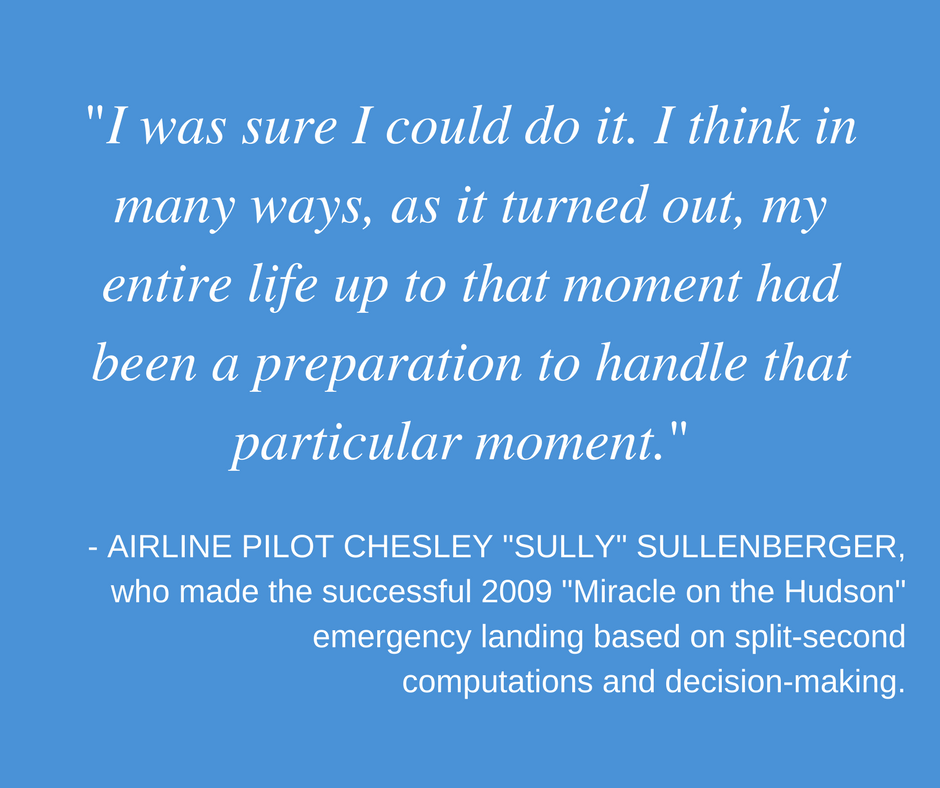When Older Brains Get Better: A Refreshing Perspective on ‘Senior Moments’
Older brains can do things that younger brains cannot.
Older brains can do things that younger brains cannot. In a lucid protest of “senior moment” terminology, writer Jeanette Leardi, invokes the well- known feat of senior airline pilot Chesley “Sully” Sullenberger, who safely landed a distressed plane in the Hudson River and saved 155 lives.
 He had a “Sully moment,” making countless split-second computations and considerations for a perfect emergency landing. As Sully put it: “My entire life up to that moment had been a preparation to handle that particular moment.”
He had a “Sully moment,” making countless split-second computations and considerations for a perfect emergency landing. As Sully put it: “My entire life up to that moment had been a preparation to handle that particular moment.”
Leardi explains that around age 50, the human brain starts maximizing its problem-solving ability. The left and right hemispheres fully connect and function in highly developed ways that still elude younger brains.
“All of this is not to say that younger adults can’t process information bihemispherically,” Leardi writes. “Of course they can. It’s just that they get better at it as they get older. Like much of life, we experience many things as tradeoffs. Sure, we may have more tip-of-the-tongue brain stutters, and our reaction times may get slower. On the other hand,…our vocabulary increases and we accumulate and retain more general knowledge at least until we reach age 60. And older adults with healthy brains continue to integrate that knowledge as they apply their skills throughout their lives. Overall, when you think about it, it’s not a bad deal.”
